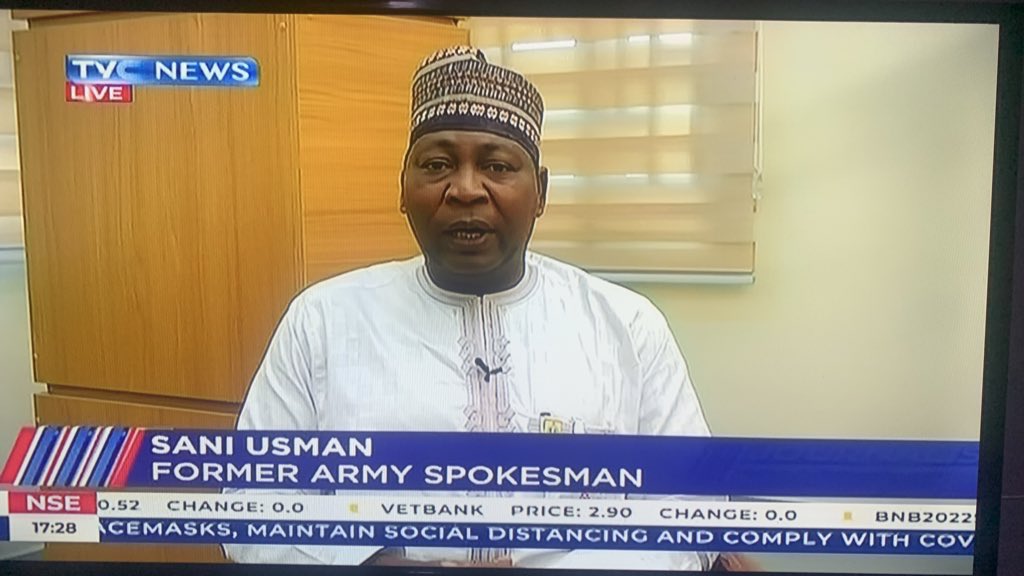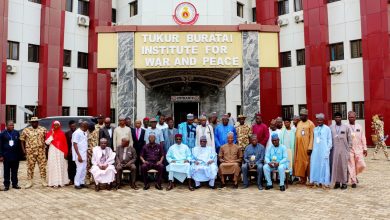Cyber spaceInsecurity
Insecurity in Nigeria: Why Hosting Foreign Military Bases Are Not the Answer

Last week, some highly respected and eminent Nigerians wrote an open letter to President Bola Ahmed Tinubu cautioning against accepting an alleged offer from two superpowers – France and the United States of America to establish military bases in Nigeria.
They wrote the letter based on a plausible rumour that these two powerful nations who have been expelled from Mali and Niger are desperately trying to have a foothold on another country in West Africa to host their military bases.
Ostensibly, these military bases are veiled efforts to promote and protect their interests couched in the name of helping to fight violent extremists such as Boko Haram, ISWAP and Al Qaeda.
However, a few days ago, the Hon Minister for Information and National Orientation, Alhaji Mohammed Idris, publicly stated that Nigeria is not considering any such offer by these countries to establish military bases in Nigeria.
Nonetheless, I commend the patriotic zeal of these eminent Nigerians for drawing our attention to this issue and the Federal Government for allaying their concerns.
Undoubtedly, Nigeria’s strategic location, economic prowess, and regional leadership positioned it as a prime candidate for such an unprecedented “foreign military cooperation.”
Following their expulsion from Mali and Niger, the strategic allure of Nigeria for French and American military bases is not surprising, as numerous factors render Nigeria an enticing location for such installations.
Positioned along the Gulf of Guinea, Nigeria offers access to crucial shipping routes and abundant resources, cementing its role as a linchpin in regional and global security dynamics.
As Africa’s most populous nation and a significant economic force, Nigeria exerts substantial influence within West Africa and beyond. Establishing military bases in Nigeria would present an opportunity for these foreign powers to extend their reach across the continent.
Moreover, France and the US may be motivated by a desire to counter-balance the growing presence of China and Russia in Africa.
Ultimately, the consideration of Nigeria as a host for foreign military bases underscores the imperative of securing strategic footholds in an increasingly pivotal geopolitical arena by these two nations.
By capitalizing on Nigeria’s geopolitical significance and geographic positioning, they seek to consolidate their influence and protect their interests amid intensifying global competition and fight against terrorism. Therefore, the fear and concerns of these eminent Nigerians are quite understandable.
Moreover, in line with its Foreign Policy objectives, Nigeria has always opposed such bases on any African country let alone on its very soil. However, the realities of today’s circumstances are quite different.
The country is facing an existential threat from secessionist agitations, Boko Haram terrorist groups, bandits and kidnappers which require collaboration with and support from other countries such as its neighbours, as well as those developed countries such as France, the United Kingdom, the United States of America and Russia, amongst others.
In this light, it is important to critically examine the pros and cons of such an agreement to understand whether these fears are justified or not.
First, we look at the merits of such establishments. No doubt having such military bases with their drone technology, training and other logistics support would enhance our national security and international collaboration and cooperation, more so as Nigeria is facing significant security challenges from various threats such as banditry, kidnapping, insurgency, and terrorism.
Therefore, further collaboration with foreign powers like the US and France could provide advanced military technology, intelligence sharing, and training support to Nigerian forces.
This collaboration could strengthen Nigeria’s ability to combat these security threats effectively. Such an agreement would also promote strategic partnership. By establishing foreign military bases in Nigeria, it can strengthen strategic partnerships with countries like the US and France. This partnership can contribute to regional stability and security, which is crucial for economic development and political stability in Nigeria and the broader West African region.
The establishments would serve as deterrence to adversaries. A foreign military presence can serve as a deterrent to potential aggressors and adversaries, signaling a commitment to defend Nigerian sovereignty and territorial integrity.This deterrence factor may discourage hostile actions by non-state actors or neighbouring countries that pose security threats to Nigeria.
However lofty the advantages of having military bases in Nigeria are, there are also cogent arguments against the establishment of foreign military bases in the country.
The first is sovereignty concerns. Hosting foreign military bases raises concerns about the sovereignty and national autonomy of our great nation, as allowing foreign military presence on Nigerian soil could compromise the country’s ability to make independent decisions on security matters and could lead to undue influence by external powers in domestic affairs.
Usually, such countries often demand special treatment for their personnel, a kind of being above the local laws and even international humanitarian laws.
This is more so because Western countries would always prioritise their interest whenever there are contentious issues or conflicts of interest.
The flaunting of Leahy Law against Nigeria by the Obama administration on the unsubstantiated allegations of human rights abuses, thus denying it the much-needed weapons in the heat of its counter-insurgency efforts during previous administrations was quite instructive.
Additionally, they will also use their surveillance technology to their advantage, which could be against Nigeria’s national interest.
There is also the issue of regional dynamics where Nigeria has historically positioned itself as a leader in Africa and has been cautious about allowing foreign military bases on its territory.
Some are concerned that hosting such bases could disrupt regional dynamics and trigger tensions with neighbouring countries, especially if they perceive the presence of foreign troops as a threat to their sovereignty or interests.
This is moreso as Russia is gradually getting a foothold on countries run by military junta in West Africa such as Burkina Faso, Mali and Nigeria’s northern neighbour, Niger. Any hosting of foreign military bases could be perceived as a re-enactment of Cold War era tensions where the country will be a battleground for supremacy between the superpowers.
There are arguments for alternative solutions to address Nigeria’s security challenges without resorting to hosting foreign military bases. These solutions may include strengthening domestic security institutions, improving governance and socioeconomic conditions of the citizenry, and fostering regional cooperation through initiatives like the Economic Community of West African States (ECOWAS) and the African Union (AU).
Moreover, most of the security challenges border on a lack of good governance. Therefore, the solutions are also local. Ultimately, any decision regarding establishing foreign military bases should be made with a comprehensive understanding of the potential risks and benefits, and it should prioritise the protection of Nigeria’s sovereignty and national interests.
There is no doubt therefore, that Nigeria faces significant security challenges, ranging from banditry and kidnappings to Boko Haram’s insurgency and secessionist agitations, among others.
The question of whether to host foreign military bases to address these threats is a complex one, with strong arguments on both sides. The pressure from these two foreign powers is quite obvious.
However, while the allure of foreign support to combat security threats is understandable, hosting foreign military bases presents a risk to Nigeria’s sovereignty and may not effectively address the root causes of insecurity in the country.
Rather, Nigeria should focus on addressing socio-economic factors that contribute to the root causes of our security challenges by enhancing good governance and strengthening its policing system.
It should also enhance military capabilities and foster regional cooperation for intelligence sharing and joint operations. By investing in its security, Nigeria can safeguard its territory, protect its people, and chart its course for a more secure future without any foreign military base on its soil.
The writer, Brigadier Sani Kukasheka Usman (rtd) mni fnipr fapra FIOARM fspsp, Sarkin Yakin Kanwan Katsina, is a public affairs commentator, public relations and security consultant. He can be reached on his X handle, and Facebook page, skusman.





